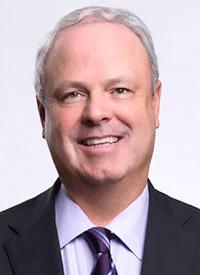ASCO Calls for Necessary Improvements to Electronic Prior Authorization
ASCO has submitted a response letter to the Office of the National Coordinator for Health Information Technology regarding the efficacy of electronic prior authorization.
Howard A. "Skip" Burris, III, MD, FACP, FASCO, ASCO chairman

ASCO has commented on the feasibility of electronic prior authorization (ePA) in response to the Office of the National Coordinator for Health Information Technology (ONC) inquiry on the streamlined system.1
ASCO stated that prior authorizations, regardless of whether or not they are electronic, place a significant burden on both the patient and provider and, in doing so, take away from the patient’s experience by delaying treatment times and time spent between patient and provider. The organization therefore supports a process designed to streamline the process; however, it claims that unless measures are taken to reduce the overall volume of “routine” prior authorizations, an electronic format will not address these barriers.
“As noted by ONC in the [request for information], stakeholders have stated that the prior authorization process is a source of burden for patients, providers, and payers,” Howard A. “Skip” Burris III, MD, FACP, FASCO, ASCO chairman, and chief medical officer, president, Clinical Operations, at Sarah Cannon Research Institute, wrote in the letter.1 “It is a cause of significant burnout for providers and a health risk for patients when it delays their care. Disparate payer policies, provider workflow challenges, and technical barriers all contribute to this burden.”
To address the underlying problems with prior authorization, ASCO has made the following recommendations:
- That the technology seek to pull necessary documentation and data from electronic medical records whenever possible;
- Responses to prior authorizations requests should be filed electronically;
- Agencies should be clear about why authorizations are denied;
- Status updates should explain any possible delays or possible additional information that may be needed ahead of the final determination.
The association anticipated that these improvements will ultimately reduce the number of required “peer-to-peer” communications prior to approvals.
Currently, the average practice completes 41 prior authorizations per physician each week, according to a survey of physicians conducted by the American Medical Association.2 Furthermore, providers spend almost 2 business days each week completion prior authorizations; 40% of physicians have staff who are exclusively tasked with filing prior authorizations, and 88% of physicians described the prior authorization burden as high or extremely high.
In addition, the requirements for prior authorization appear to be increasing. According to a survey released by the Medical Group Management Association in March 2022, 79% of participants claimed that priori authorizations have increased over the past year.
Previously, the ONC’s Electronic Prior Authorization RFI Task Force stated that an overall reduction of prior authorization requirements will be necessary to implement successful widespread ePA implementation.ASCO agreed with this claim, adding that the creation of a trust and verify framework for services that are routinely approved might make this goal possible.
ASCO also supported the ONC’s statement that the Department of Health and Human Services should seek to incentivize the adoption of standard epA technology for smaller, under-resource providers. This, according to ASCO, will helped ensure the widest benefits of ePA technology are felt by patients.
Reference
- Electronic Prior Authorization Will Help Streamline Process, but Volume of Requirements Must Decrease. American Society of Clinical Oncology. News release. March 29, 2022. Accessed March 31, 2022. https://bit.ly/3LzEihF
- 2021 AMA prior authorization (PA) physician survey. The American Medical Association. Accessed March 31, 2022. https://bit.ly/3Lx1BI
- Ernst, C. Virtually all medical groups say payer prior authorization requirements aren’t improving. MGMA STAT, March 2, 2022. Accessed March 31, 2022. https://bit.ly/3iSnCpm
- Prior authorization demands are getting worse, survey finds. Chief Healthcare Executive, March 4, 2022. Accessed March 31, 2022. https://bit.ly/3iXcszi
Latest Conference Coverage
2 Commerce Drive
Cranbury, NJ 08512
All rights reserved.



